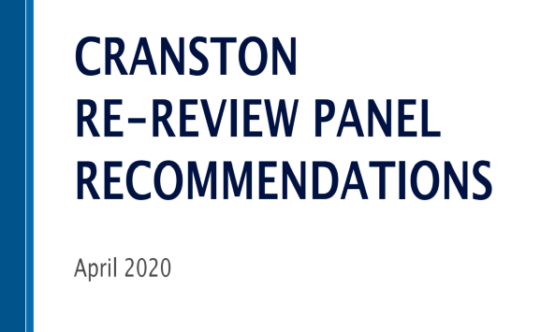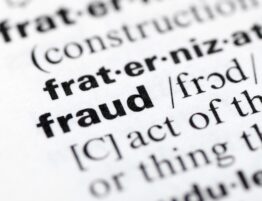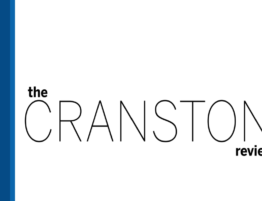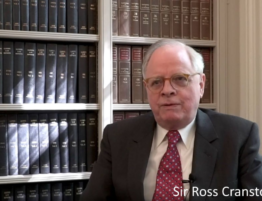
Background
In December 2019, Sir Ross Cranston delivered his eagerly anticipated report into the heavily criticised Customer Review that was established by Lloyds Banking Group (the “Bank”) and overseen by Professor Griggs, in the wake of the HBOS Reading fraud scandal
One of the key recommendations made by Sir Ross in his (first) report was that the assessment of Direct and Consequential (D&C) losses for customers affected by the fraud would have to be re-done.
At Appendix 2 of his report, he set out his proposals for how this re-assessment could work and the panel which would undertake that re-assessment.
Since then, Sir Ross has met with the Bank, “stakeholders” and customers (including DS Law, on behalf of our clients) to obtain feedback on his initial proposals.
Recommendations for Re-Review
At 12pm on Friday, 3 April 2020, Sir Ross published his second report providing his final recommendations for the panel re-assessment process.
Sir Ross’s key recommendations include:
- The Panel will comprise of Sir David Foskett, a retired High Court judge, who will be the Chair; Philippa Hill, from Grant Thornton, as the independent forensic accountant; and Andrew Hildebrand, a dispute resolution expert (and mediator) with SME experience, who is expected to bring an understanding of the customer’s perspective.
- The work previously undertaken for the Griggs Customer Review will be utilised by the Panel and will form the basis for its assessment of each customer’s case
- Customers will have the opportunity to meet with the Panel during the initial stages of the Re-Review process, to explain first-hand the financial losses they believe they have suffered as a result of the fraud, and to draw the Panel’s attention to any matters which they feel were overlooked or not dealt with adequately during the Customer Review. Customers may be accompanied to their meeting by a “customer advocate”. During those initial stages the Panel may also request further information or documents from the customers and the Bank.
- The Panel’s assessment will be carried out on an inquisitorial basis, meaning that the Panel will be responsible for gathering relevant information and documents and assessing that evidence. In other words, it will not be limited to what is put before it by the Bank or by customers.
- Once the Panel has considered all of the relevant documents and evidence, it will publish a ‘minded to’ decision (i.e. a decision which gives an indication of what the Panel is minded to conclude). At the same time, it will disclose to customers and the Bank the documents on which it relied in reaching its decision.
- Customers and the Bank will then have the opportunity to challenge or respond to the ‘minded to’ decision.
- The Bank will fund a customer’s costs of reasonable legal representation and, where the Panel considers it necessary, financial advice, in the event that a customer chooses to challenge or respond to the ‘minded to’ decision.
- The Panel will publish its final decision, which will be binding on both the Bank and the customer.
- In making its decisions the Panel will adopt a generous and fair approach to decision-making, and a common-sense approach to proof of causation and loss.
- There will be a presumption of set-off against any Panel award of sums the Bank paid customers in the Customer Review, other than: (i) the original Customer Review outcome offer; and (ii) the two ex gratia payments made by the Bank.
Recommendations
Prior to commencing any work on its re-assessment of customer cases, the Panel will publish its methodology, so that customers can understand how it is intending to approach its re-assessment, including, for example, the categories of D&C loss which it will consider and the types of information which it might consider helpful for customers to provide in this regard.
Sir Ross has said that it is “vital” that the Panel is up and running “as soon as possible”. It appears that, once the Panel has published its methodology, it will then contact all customers who entered into settlement agreements with the Bank in the Customer Review and invite them to opt into the Re-Review process. However, there is currently no timetable for when this is expected to be.
Comment
Michael Sparkes, DS Law, solicitors to numerous HBOS victims, comments:
“Sir Ross has delivered another excellent report and, in his clarifications document, has rejected the Bank’s attempts to water down his previous recommendations. In particular, his rejection of the Bank’s restrictive interpretation of de facto directors and individuals “actively involved with the running of the business” has the potential to lead to a significant expansion in the number of customers eligible for the Customer Review.”
Link to the Cranston Re-Review Panel Recommendations
Link to the original Cranston Report
Link to The Cranston Review Website
DS Law is a specialist fraud and banking litigation firm which has advised a significant number of victims of the HBOS Reading banking scandal in their fight for fair compensation.







Write a comment:
You must be logged in to post a comment.